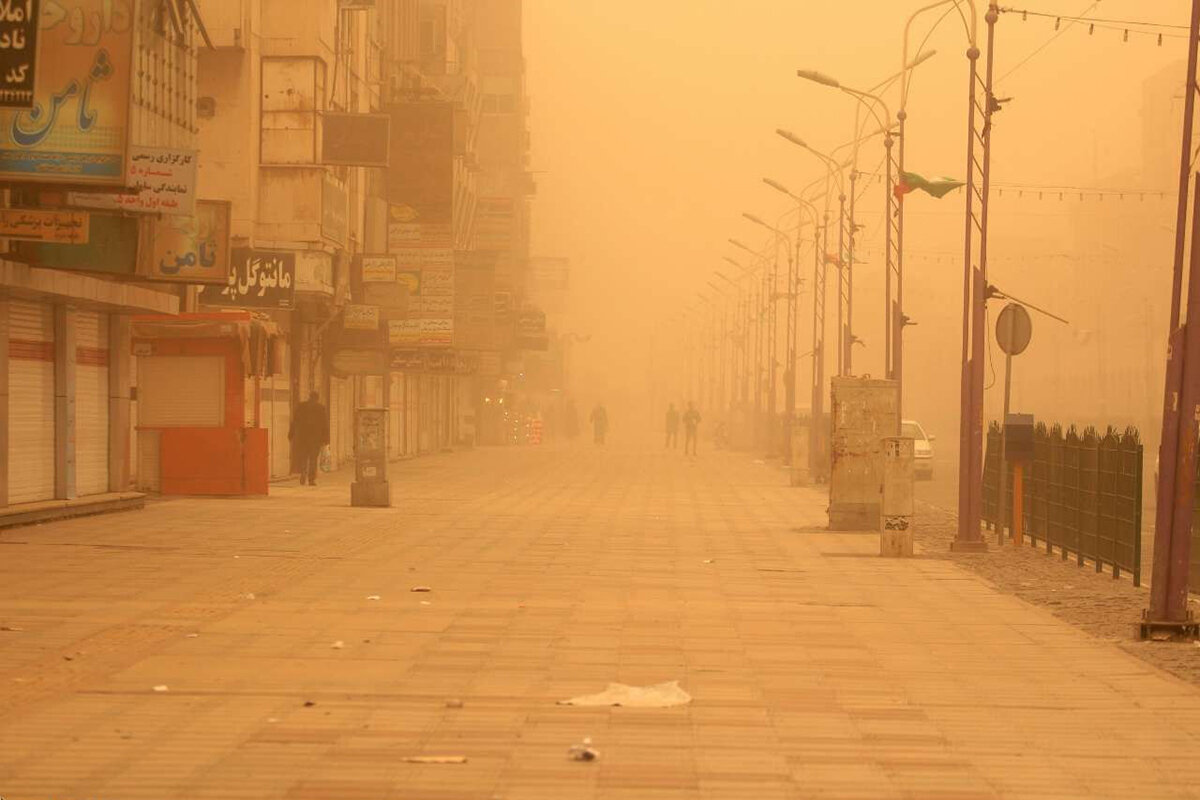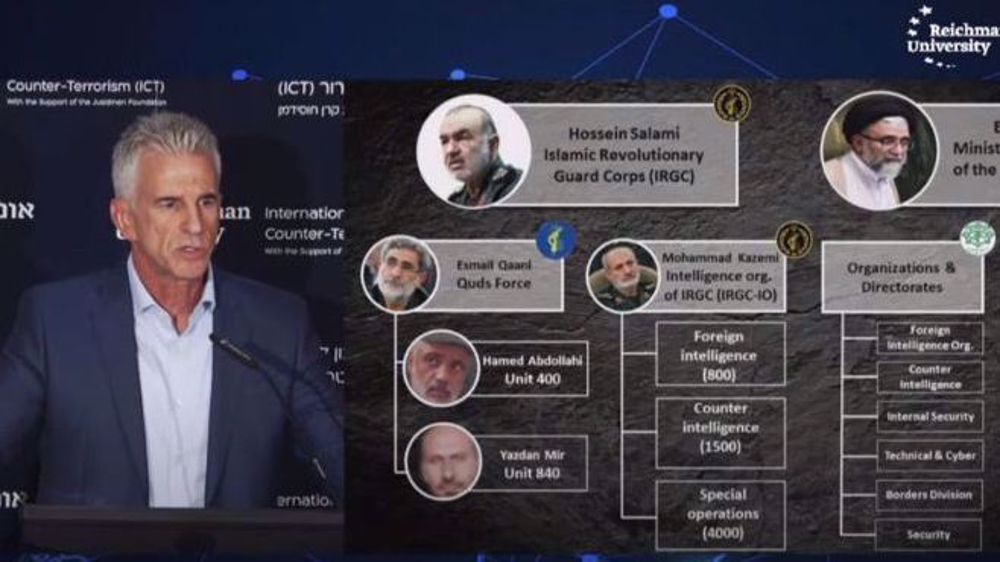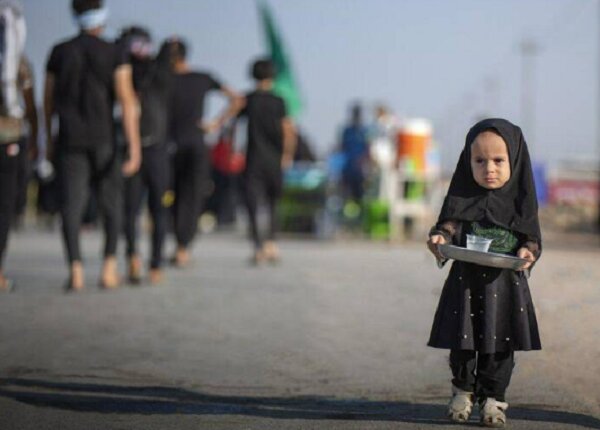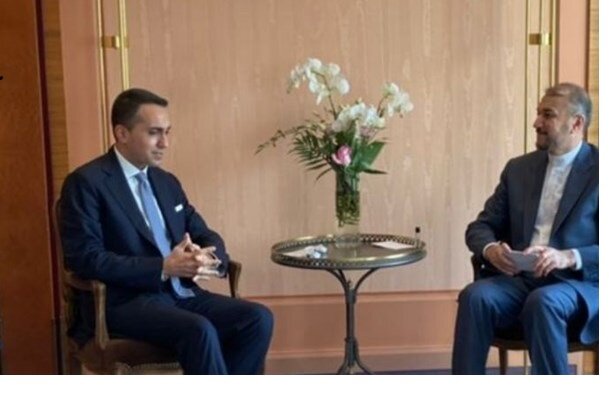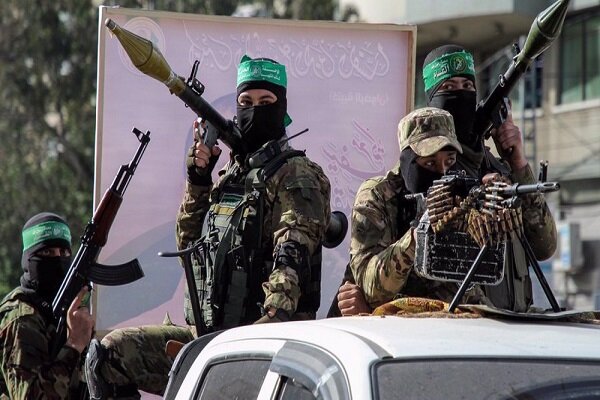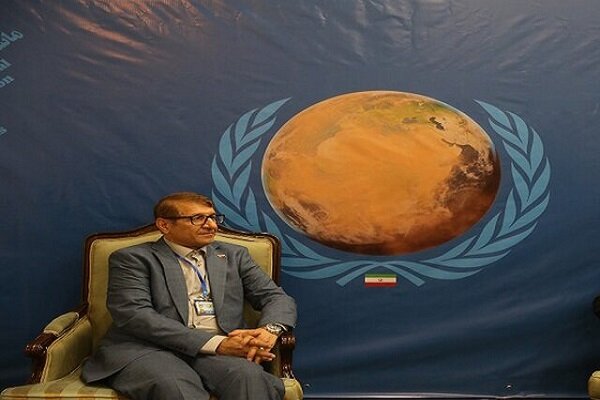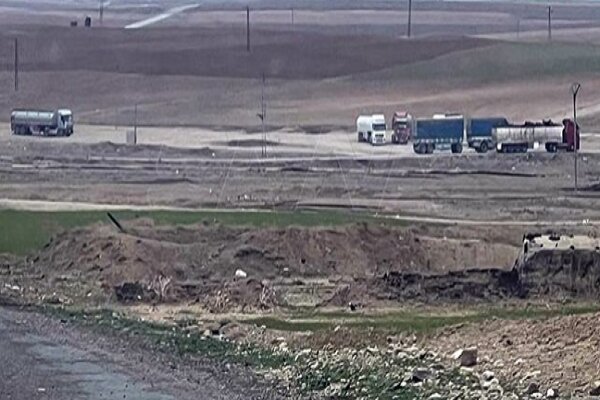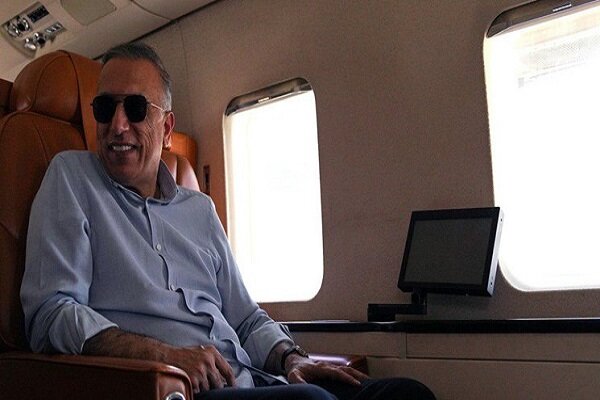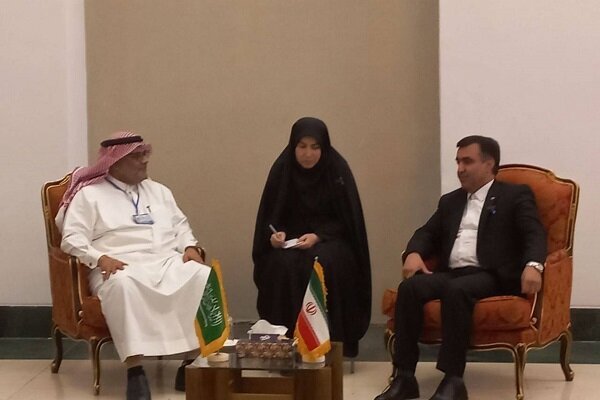Every year, Iraq receives millions of Imam Hussein (AS) lovers of different races and ethnicities who go to Karbala mostly on foot during the Arbaeen procession. The Arbaeen ceremony is held more magnificently every year.
Last year, nearly 21 million pilgrims participated in the ceremony. Considering this year’s statistics, a significant increase in the number of pilgrims is witnessed; The Iraqi government has announced that 25 million people took part in this year’s Arbaeen pilgrimage.
This year, Iranians made up the majority of foreign pilgrims taking part in the Arbaeen trek, with the participation of about four million people.
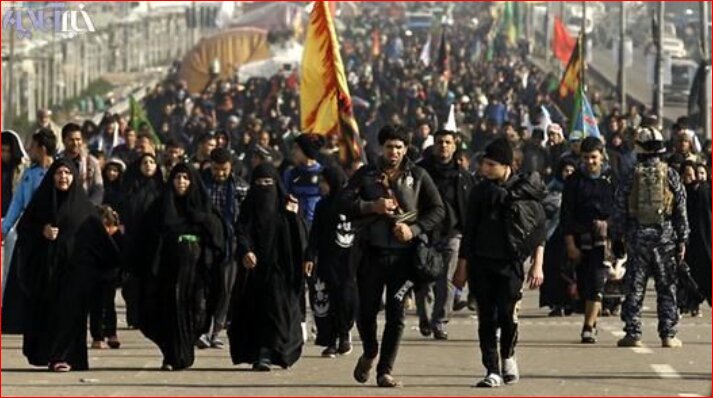
While Iraq was having its hottest days during this year’s Arbaeen procession days and the temperature in most parts of the country reached more than 40 degrees, the number of pilgrims significantly increased compared to the previous years. Despite the hot weather, Arbaeen pilgrims trekked long distances to reach the shrines of Imam Hussain (AS) and Hazrat Abbas (AS).
In such a situation, the presence of pilgrims from Afghanistan, Pakistan, India, Russia, Georgia, Turkey, Sweden, South Korea, and China along with pilgrims from Kuwait, Bahrain, Qatar, Saudi Arabia, Palestine, Syria, Sudan, and Nigeria was noticed by media outlets.
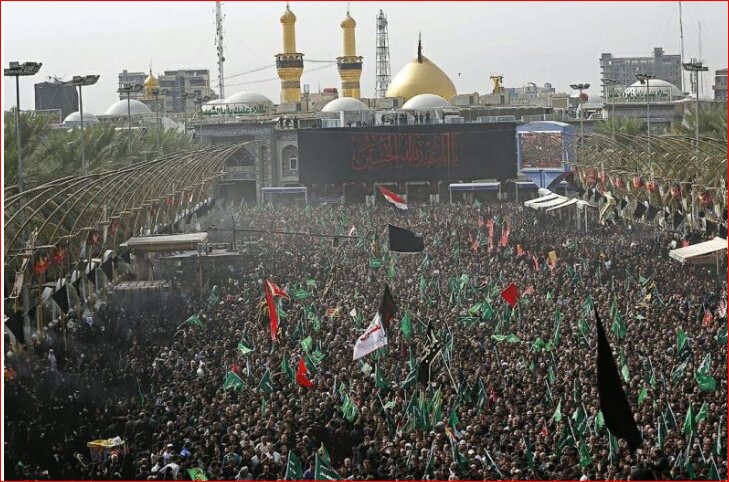
The glory of hosting
Now this question comes to mind: “How did the Iraqis host millions of pilgrims?” To answer this question, we depict their hospitality in a glimpse.
As in every year, the Iraqi mawkibs (voluntarily prepared stations) this year started their activities a few weeks before Arbaeen in order to serve the pilgrims more successfully. Of course, the Iranians also set mawkibs to help the Iraqis in hosting the pilgrims as well.
Hosting millions of pilgrims by the people of a war-torn country is a difficult task that requires serious faith and determination. Many Iraqi people love Imam Hussein (AS). When you interact with them, you realize that some of the hosts are just simple workers who have worked for a whole year to serve Imam Hussein’s pilgrims with their savings.
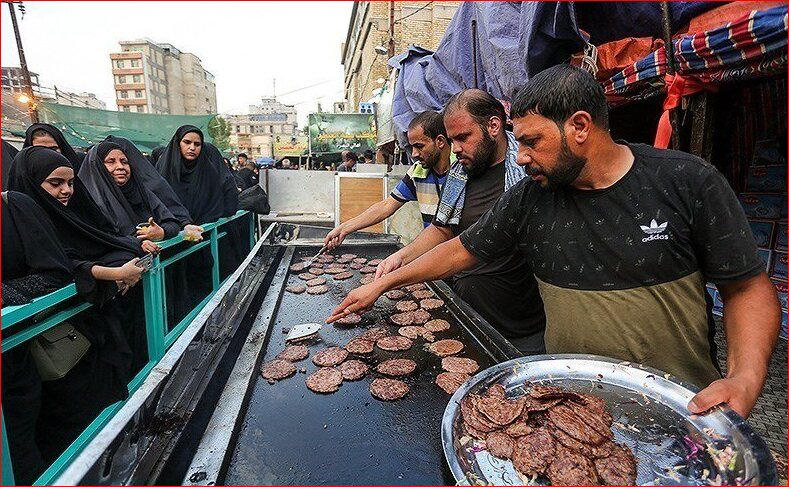
The sincere devotion of the Iraqis to the third Imam of the Shiites can clearly be seen throughout the whole Arbaeen route. Most of them set up tents and mawkibs on the route to serve the pilgrims with all their possessions, even with a loaf of bread or by washing the pilgrims’ feet. They consider serving the pilgrims a great honor for themselves.
The moment the pilgrims enter Iraq, they will be welcomed by Iraqis with a smile and by getting directions to the holy Karbala. If the pilgrims are thirsty, the Iraqis will treat them with a glass of water, and in return, they will only ask for saying “Ya Hussein”. because they know very well that Imam Hussain (AS) will reward the hosting, himself.
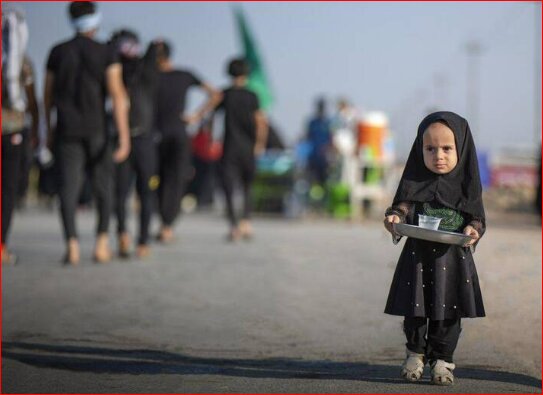
With every level of livelihood situation, the Iraqi people welcome pilgrims to their homes so that they can rest and have food for a few days.
But the mawkibs on different routes to Karbala depict the depth of this hospitality. They serve the pilgrims day and night by offering food and hot and cold drinks and even providing services such as massaging.
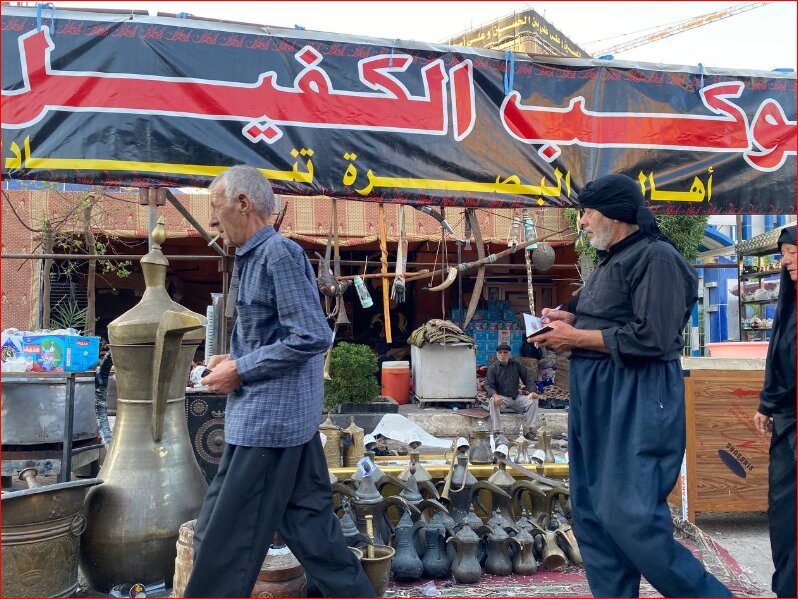
Therefore, there is no shortage in this route, and the Iraqi people, as the hosts of this great epic, sincerely provide the pilgrims with everything they have.
Ali Yamani, one of the Iraqi mawkib owners, says: “We started our activity about 2 weeks before Arbaeen, and we start cooking and distributing sweets and cakes in the morning, and cooking falafel starts around noon. In the evenings, we also cook french fries and offer pizza at night.”
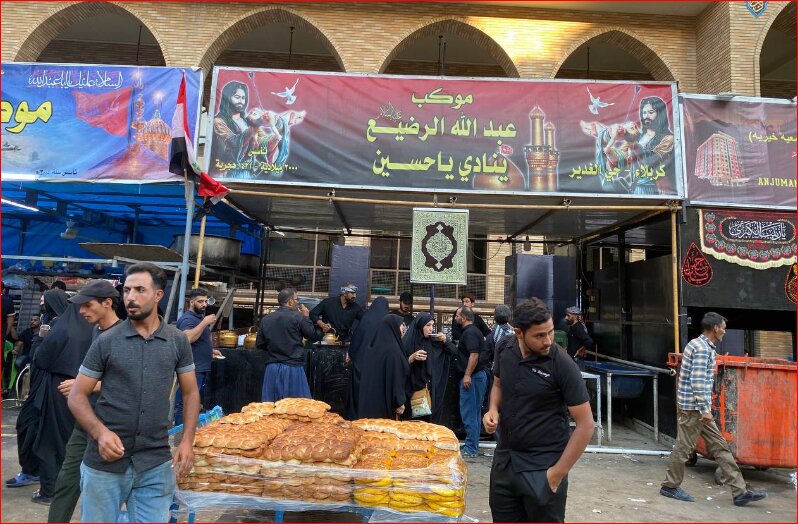
Some mawkibs insist that pilgrims should take even a bite from their food. Of course, long lines may be formed to get food from some mawkibs, but no one returns empty-handed, and the phrase “There is no more food” has no meaning here. Also, despite the hot weather in Karbala, there is so much food and water that no one remains thirsty or hungry.
Appreciating the generous, history-maker hosts
Iranians, from the country’s high-ranking officials to the citizens, always praise and thank the tireless efforts of the Iraqi people and the statesmen in holding the Arabeen procession.
Iranian President Ebrahim Raeisi, recently, thanked the Iraqi government and nation for hosting the Arbaeen pilgrims, saying that the Iraqi government cooperated a lot in facilitating the entry of pilgrims into Iraq. He also appreciated the people of Iraq for their generous hosting of Arbaeen pilgrims.
Meanwhile, Iran’s Cultural Attaché in Baghdad Gholamreza Abazari hailed the Iraqi officials, security forces, and nation for gloriously hosting the pilgrims during the Arbaeen trek.
What do Iranian people think about Iraqis?
The Iranian people, just like the country’s high-ranking authorities, always appreciate the humble hosting of the Iraqi government and nation in this journey.
For instance, in the clip below, Iranian people who went on the Arbaeen trek were asked what they thought about the Iraqi hosts. Everyone thanked the Iraqi people and said that there is no host in the world like the Iraqis.
Also, in the documentary below which is about the 2022 Arbaeen, the hospitality of the Iraqi people can be clearly seen.
Even the Iranians launched a campaign on X social media, formerly known as Twitter, to express their gratitude for Iraqis’ hosting.
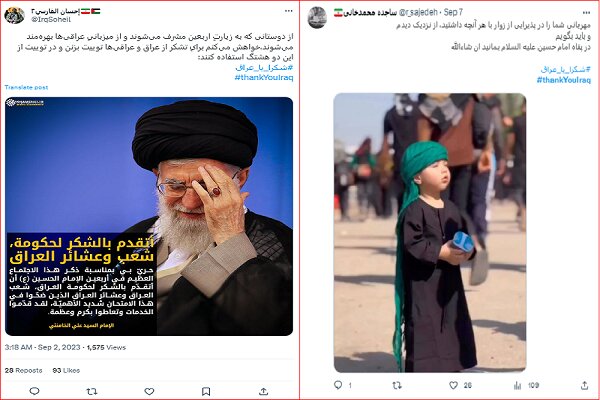
In the end, it must be admitted that the hospitality of Iraqis is unique in history; They have been trained since childhood to host the pilgrims of Imam Hussein (AS) regardless of their nationality and race.
Even though the opposition media did their best to sow differences between Iranians and Iraqis, all their efforts failed and this year’s Arbaeen procession was held more magnificently than in previous years.
MP/5882382


